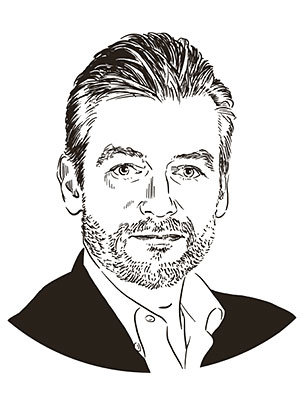Should complementary medicine be the subject of research just like other disciplines, Christoph Meier?
Text: Christoph R. Meier
How should university research approach complementary medicine? A debate between a pharmacist and a physician.
In a clear referendum result ten years ago, the Swiss people chose to embed complementary medicine in the Federal Constitution as a part of basic healthcare provision that should be promoted. This decision made it law that complementary medicine is part of the basic university training in pharmacy and medicine and is partly paid for by basic health insurance. Throughout Switzerland, thousands of people inquire about complementary therapies in pharmacies and doctors’ offices, and many apply such methods. This really already answers the question as to whether we should reject complementary medicine or research it seriously and teach it at universities in an evidence-based way.
Few people know what the term “complementary medicine” really means. Many people think it is the same as homeopathy, a red rag to scientists. It is in fact much more since the spectrum of complementary medicine includes not only homeopathy, but also phytopharmacy, anthroposophically oriented medicine and Chinese medicine (incl. acupuncture). If we look beyond disputed homeopathy, few would claim that, for example, phytopharmacy should not be researched. After all, many highly effective and important drug treatments come from nature. Just think of the pioneering antibiotic penicillin, the immunosuppressive drug ciclosporin or the commonly used acetylsalicylic acid, better known as aspirin. If the scientific community had tried to ban research into natural plant substances in the early days of phytopharmacy, the plethora of drugs available today would be several times smaller and life expectancy would be considerably shorter.
Where does the aversion to complementary medicine in certain circles come from? As I said, the key to this is homeopathy. Its protagonists claim that, even a very strongly dilute solution in which contents are effectively no longer detectable can have a therapeutic effect because the carrier solution still contains energy from the active substance. This is at odds with the current acknowledged fundamentals of physics and chemistry. I, too, struggle with this claim and remain extremely skeptical toward homeopathy until solid proof to the contrary is provided.
However, an implausible or irrational hypothesis does not mean that research should be prohibited. We use many conventional drug treatments about which we know neither the cellular mechanism of action nor have good clinical trials, but we are convinced that they are effective for phenomenological reasons. Everybody surely agrees that you should research such active substances further to understand them better.
Seen from this angle, a disputed method such as homeopathy should also be the focus of research, quite apart from other complementary medicine methods that are better grounded in science and not in dispute. Many patients and specialists are convinced of their effectiveness from their own experience, which really should arouse the curiosity of researchers to explore a phenomenon rather than reject it from the outset.
Evidence-based research enables factual, scientific discussion outside emotional questions of belief. The only essential aspect is that the most elementary ethical rules of research must be followed: transparent, reproducible and verifiable methods, unbiased objectivity and honesty of researchers and nonselective publication of all research results whether negative or positive. In that case, there is no objection to research into any form of therapy provided someone is prepared to finance it and the accepted ethical rules are followed.
Christoph R. Meier is Professor of Clinical Pharmacy and Pharmacoepidemiology at the University of Basel’s Department of Pharmaceutical Sciences and has headed the department since 2012.
More articles in the current issue of UNI NOVA.

